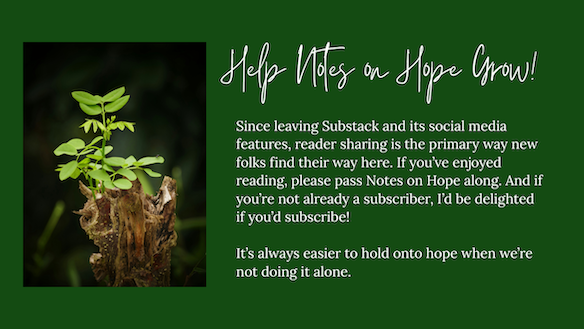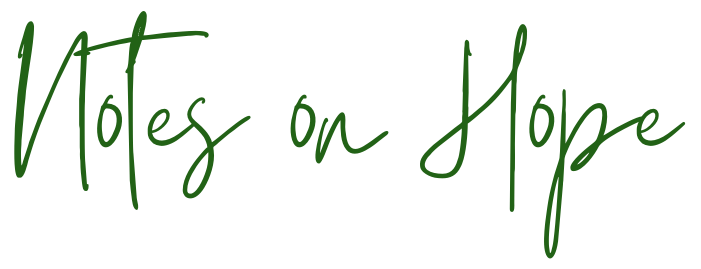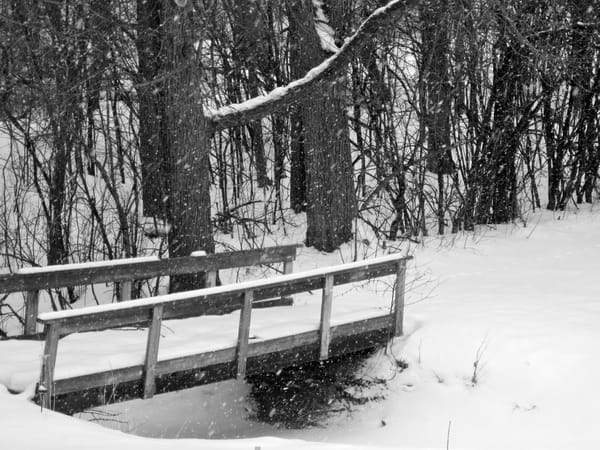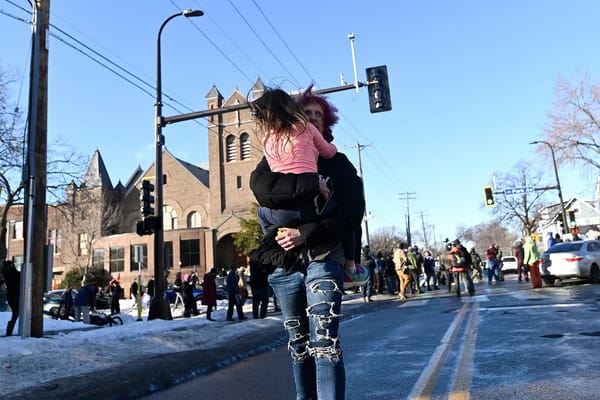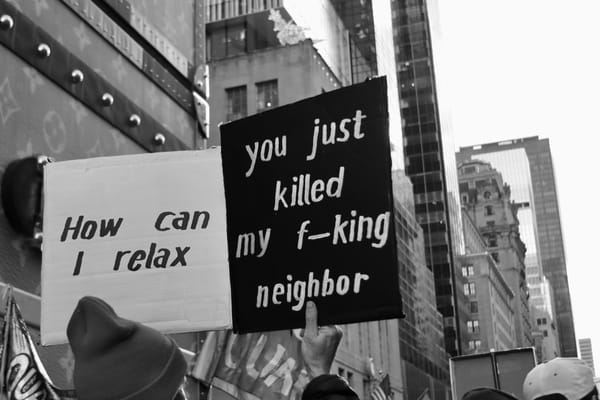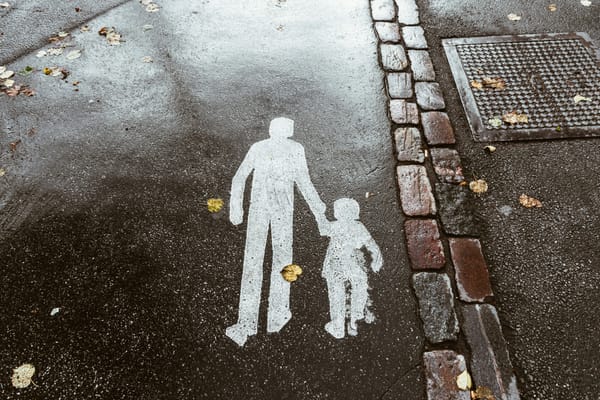A Belated Love Letter to Jane Goodall
And her relentless insistence on hope and empathy
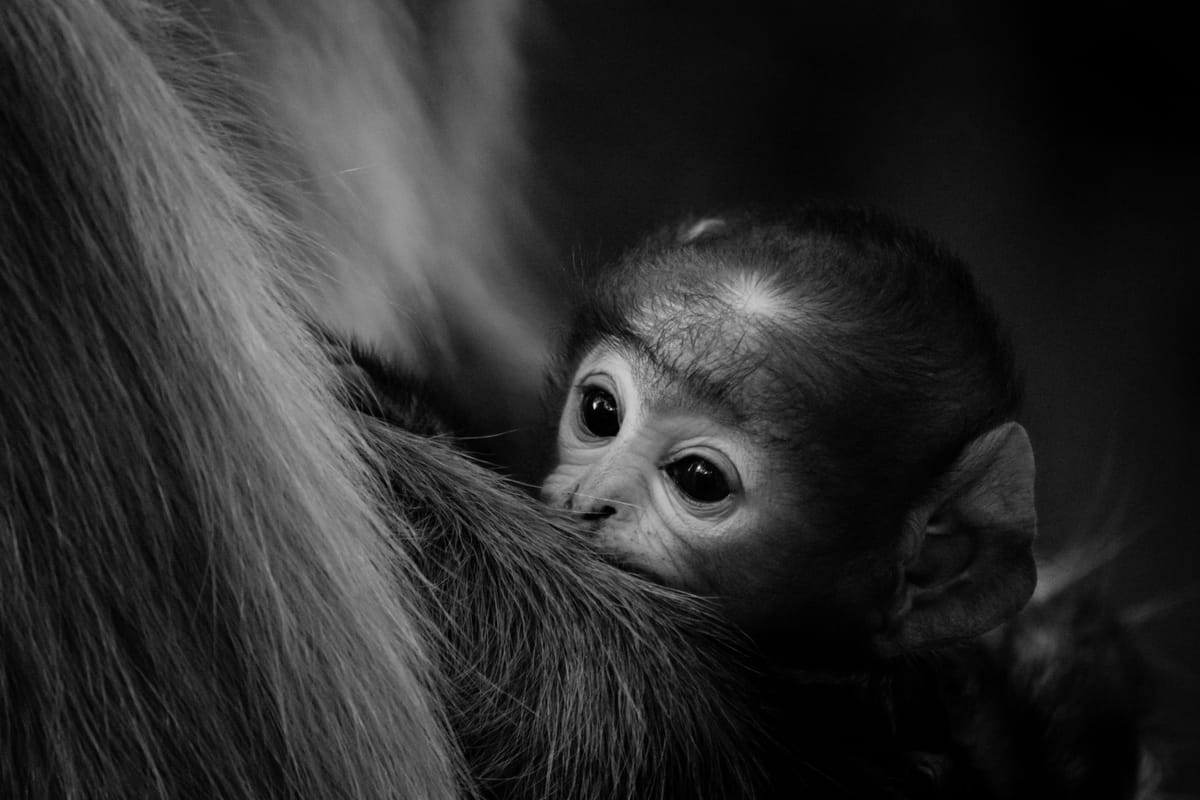
“Before I leave, I have a demand: a poem against
extinction. It begins in bellies. It begins in
endings. Underneath a plume of facsismo
is another atmospheric condition—all pink,
ascending pitch, hatching eggs of laughter.
A blaze of new sunlight repairing an archive
of unseen beams, knit together in mingled breath,
here we come to we.
Infinite moon wandering ice ages, cellular oceans
cusping margins, welcoming invasive species of
under-water birds: each song an errant language,
but understanding commences in silence.
Listen, next time, the flowers are naming themselves.”
~Zaina Alsous
I’ve been meaning to write about Jane Goodall since her death last month. As I typed that sentence just now, I almost wrote “untimely” in reference to her death, despite the fact that she was 91. Some losses feel achingly premature no matter when they come. There are those whose impact is so profound and so thoroughly good that we somehow expect them to be immortal. I’m struck by how this feeling seems poetically aligned with Jane Goodall’s work, which was dedicated to saving species and ecosystems that we might wish to presume eternal but that are, in fact, exceedingly fragile. She directed our gaze and our hearts toward the intertwining of vulnerability and resilience—toward the importance of recognizing all that we have to lose without ever resigning ourselves to the inevitability of loss.
And yet, the relationship between our admiration of heroes like Jane Goodall and our own willingness to try to make a difference in the world ourselves can be fraught, because it is so easy to look upon those who have had an outsized impact and to feel impressed and grateful for their work but, at the same time, intimidated by its scope. Such legacies can feel untouchable and impossible to match, creating a particular form of paralysis where we should find inspiration. When our own reach feels extremely limited, it is tempting to look upon someone like Jane Goodall and believe that our work doesn’t matter because we can’t imagine it ever having such a seismic effect.
I think Goodall herself must have felt this tension, particularly in the latter years of her life, because her message, as she aged, became increasingly focused on the conviction that every little thing we do matters. We are all pebbles in the stream of human impact, constantly changing the flow of everything around us, even when that change seems imperceptible. In nearly every interview in her final years, Goodall repeated this message,
“Every single day you live you make a difference in the world, and you get to choose the difference that you make.”
While we often think of fame as the pinnacle of influence and inspiration, Jane Goodall seemed to recognize that fame, including her own, can also be intimidating and, as such, it can deter us from acting on the potential within our own comparatively small and quiet lives. It is notable that she dedicated much of the last 34 years of her life to creating and nurturing Roots and Shoots, an organization which, both in its mission and its very name, is dedicated to the belief that all of our little ideas and actions have the potential to grow and extend beyond us, and that instilling this belief in both children and adults is essential to the future.
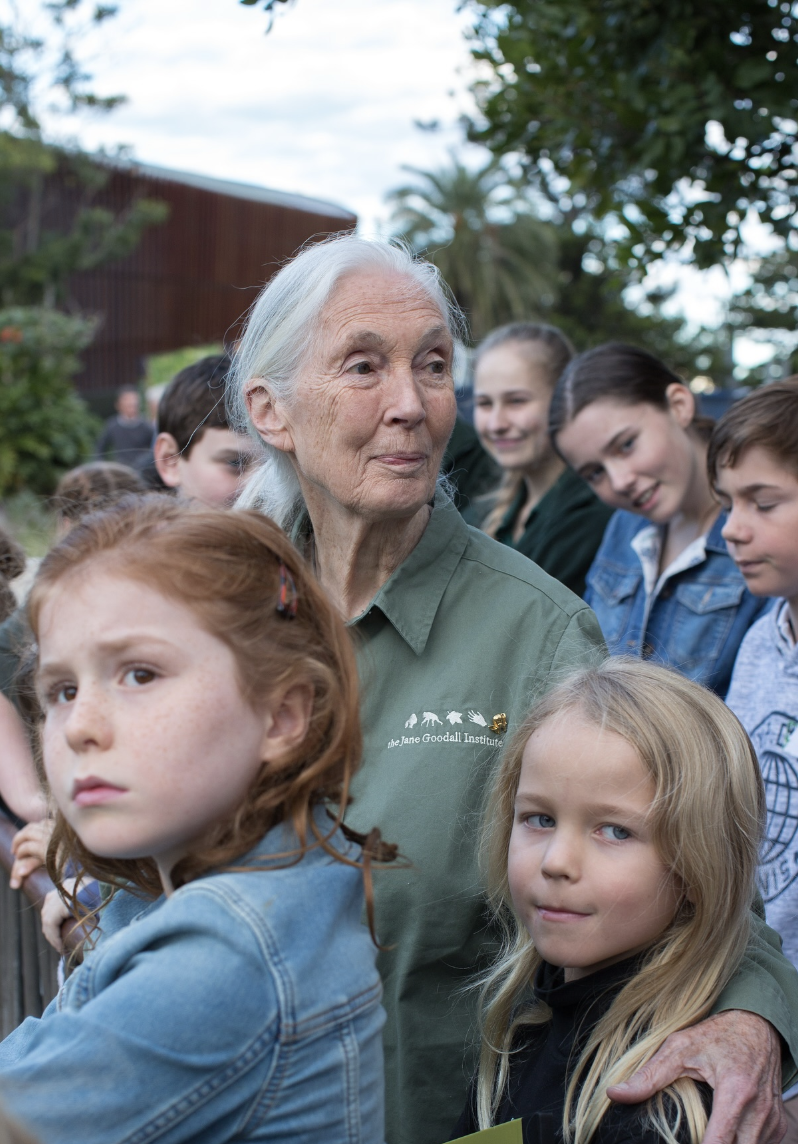
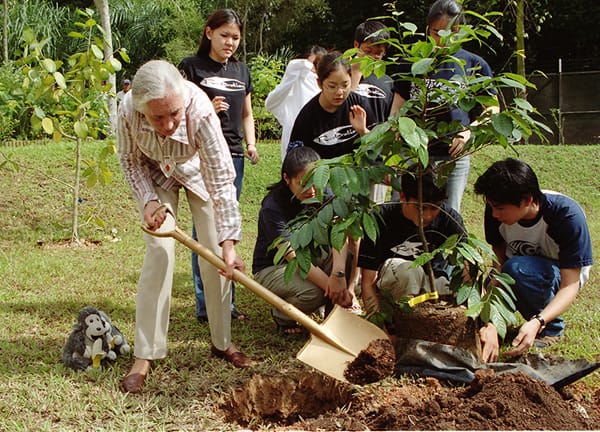
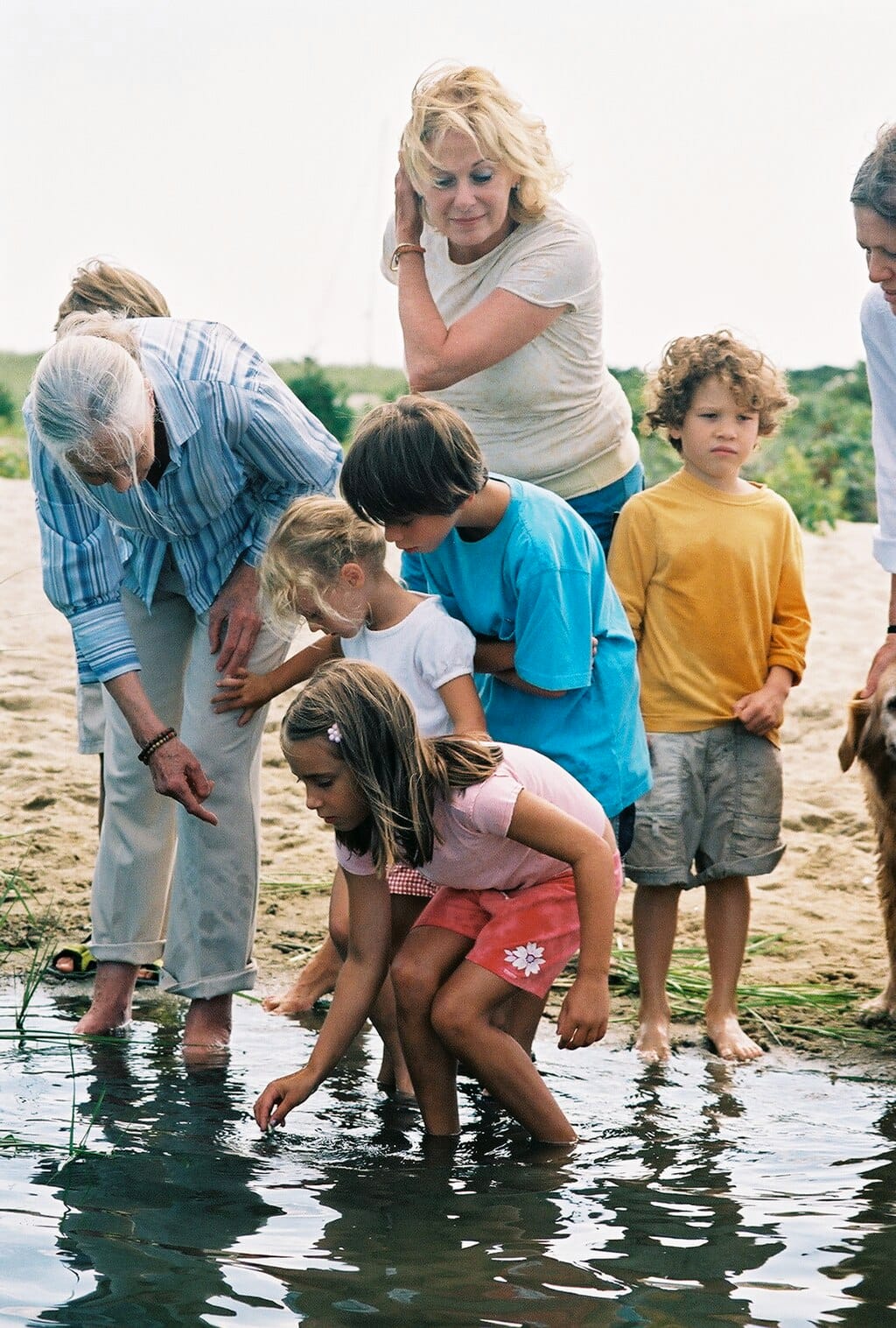
Over the course of her career, Goodall wrote 32 books. The last five of her books were all about hope. As she neared the end of her own time on earth, she seemed increasingly intent on reminding the rest of us not to give up, to believe that we, too, could have a meaningful impact, and to act accordingly. She asked us not to put her own work on a pedestal but rather to try to do what she had always done herself—to lean into empathy for the human and non-human world and to act on that empathy, instead of on our insecurities and our doubts. Every day makes a difference in some way, she insisted again and again, so we might as well make sure that we are using the impact, however small, of our own days to make sure that difference is a positive one.
She was acutely aware of the temptation of cynicism and despair, noting that there is much to observe in our current world that would easily lead one toward depression. Her insistence on hope didn’t originate from an unwillingness to acknowledge all that is legitimately dire, particularly in our relationship to the natural world. Rather, her hope stemmed from an understanding of the impact that resignation inevitably has in making the worst possibilities more likely and, by contrast, the impact that hope can have, pulling us back from those possibilities and moving us even fractionally closer to something better. She saw hope not as naive but as a motivational and moral necessity—as fuel for positive action.
“Don’t you actually hope that what you’re going to do and what you’re going to put your heart and soul into is actually going to make a difference? You hope it’s going to make a difference. And without that hope, if people believe that everything they’re doing isn’t going to work, why bother? Let’s eat, drink, and be merry for tomorrow we die. My hope is absolutely tied in and fundamental to pushing us forward. It’s hope with action. You can’t have hope just, ‘oh I hope it’s going to be okay,’ and not do anything. No. I think we need another word for that. The hope I’m talking about is, ‘I’m going to do my damndest to make this happen.’ And it's hope that it will happen that’s pushing me to do it.”
I worry sometimes about the way our fixation with entrepreneurial culture and viral influence has led us to overemphasize scalability, fostering the perspective that the only impact that matters is big impact. Surely, as we edge ever closer to markers that threaten to tip global problems into zones of irreparable damage, there is a legitimate need to seek out and leverage ideas that have the potential to create rapid, massive change. But it is also true that we are often bad at predicting which ideas and actions will have a big and lasting impact. If we become too timid to try anything, out of a fear that what we try might not be powerful enough to be decisive, we will certainly end up short circuiting the potential for change on both a small and a large scale.
Jane Goodall’s life also emphasizes the ways in which our small, personal spheres of impact are important in and of themselves, not only as potential catalysts for bigger change, but also for the difference every gesture of care can make on an individual level. She led a life filled with and fueled by intimate, personal relationships—relationships with a wide network of fellow scientists, with children, and of course with animals. One cannot observe her interacting with one of her beloved chimps without feeling the importance of these personal bonds. Yes, her relationships with animals changed the course of the understanding and viability of entire species and ecosystems. But these individual bonds were also valuable for the suffering they alleviated and the love and security that they fostered on the most personal level.
In listening to the conversation between Jane Goodall and Ayana Elizabeth Johnson, another aspect of the significance of small moments and seemingly small impact also seems to be found in the little, unexpected experiences that cause us to care or that spark our capacity for hope. Both scientists describe very precise interactions with nature as children that inspired their lifelong passion for the natural world. For Goodall it was her time sitting in a tree in her childhood garden and for Johnson it was a ride on a glass-bottom boat. Goodall also speaks about the power of stories and personal relationships to inspire care for nature and to change perspectives and actions at the individual level.
As impressive as the scope of Jane Goodall’s life unquestionably is, a common thread throughout her work is the power of small moments, small actions, and intimate relationships to be important, meaningful, and worthy. Early in her career, Goodall was told that to be a scientist she needed to distance herself from empathy and care and from individualizing the animals she studied, for the sake of objectivity. Her life’s work was, in many ways, a repudiation of this guidance, which she called “rubbish.”
Surely, the best way to both honor Jane Goodall’s legacy and to continue to extend the impact of her work and her message is to do the same—to reject the notion that our care runs counter to our ability to make discoveries or to make a difference and to reject the instinct to confine our actions out of a fear that they might not be big enough. Instead, she clearly wanted us to commit to staying hopeful and, in that hope, to take any steps possible every day, no matter how small, to make the world even a little bit gentler, safer, and more sustainable.
Wishing you the hope and dedication to do the small, caring things each and every day,
Alicia
A few things I found helpful and hopeful this week…
- Listen to Jane Goodall's conversation with Ayana Elizabeth Johnson
- Joan Baez on the role of music in movements
- Meet Three Teens Who Overturned a Book Ban
- Why Teen Vogue mattered and what we've lost
- What I Need You to Understand, Notes from Chicago by Dan Sinker
"This is how it works: We protect each other, period. These are our neighbors, our friends, our family. We do the things we have to do to ensure that as many of us can make it to tomorrow as possible. Not everyone does. I need you to understand that we tried."
